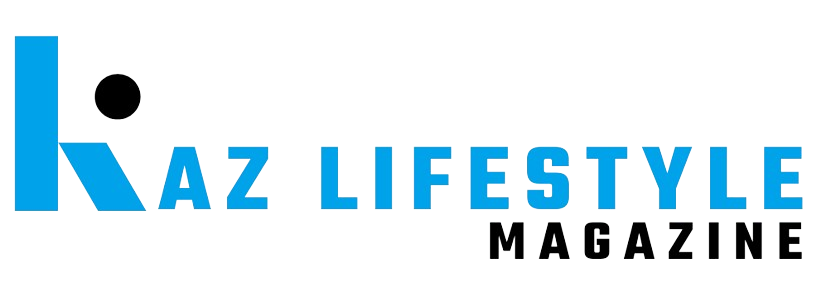Insurance Terms Explained: A Resource for Founders and Startups
Starting a new business is a challenging endeavor, filled with countless decisions and considerations. One crucial area that often confuses many founders and startups is understanding insurance terms. Proper insurance coverage is essential for protecting your business from potential risks and liabilities. This article will break down common insurance terms, making it easier for you to make informed decisions.
Why Insurance is Important for Startups
Risk Management
Every business faces risks, from natural disasters to employee injuries and lawsuits. Insurance helps mitigate these risks, providing a safety net that allows your business to recover from unforeseen events without suffering significant financial loss.
Legal Requirements
In many regions, certain types of insurance are legally required. For example, workers’ compensation insurance is mandatory if you have employees. Understanding these requirements ensures compliance and avoids legal penalties.
Key Insurance Terms Explained
General Liability Insurance
General Liability Insurance protects your business from claims of bodily injury, property damage, and personal or advertising injury. This coverage is essential for any business as it provides protection against common risks.
Bodily Injury
This refers to physical harm or injury caused to a person due to your business operations. If a customer slips and falls in your store, for instance, bodily injury coverage would handle the medical expenses and legal fees.
Property Damage
Property damage covers any harm your business might cause to someone else’s property. For example, if a contractor accidentally damages a client’s home during a renovation, this coverage would pay for the repairs.
Professional Liability Insurance
Also known as Errors and Omissions (E&O) Insurance, Professional Liability Insurance covers legal claims arising from professional services provided. If a client alleges that your advice or service caused them financial loss, this insurance would cover legal costs and settlements.
Negligence
Negligence in this context refers to a failure to exercise the care that a reasonably prudent professional would, leading to harm or loss. E&O Insurance covers claims resulting from such negligence.
Workers’ Compensation Insurance
Workers’ Compensation Insurance provides benefits to employees who suffer work-related injuries or illnesses. This coverage is typically mandatory and includes medical expenses, rehabilitation costs, and lost wages.
Medical Expenses
Medical expenses cover the cost of medical treatment required due to a work-related injury or illness. This can range from emergency room visits to long-term rehabilitation.
Lost Wages
If an employee cannot work due to an injury, lost wages coverage ensures they receive a portion of their regular income during their recovery period.
Commercial Property Insurance
Commercial Property Insurance protects your business’s physical assets, including buildings, equipment, inventory, and furniture, against risks like fire, theft, and natural disasters.
Replacement Cost vs. Actual Cash Value
Understanding the difference between replacement cost and actual cash value is crucial. Replacement cost covers the amount needed to replace damaged property with new items, while actual cash value accounts for depreciation, reimbursing you for the property’s current market value.
Business Interruption Insurance
Business Interruption Insurance covers lost income and operating expenses if your business is temporarily unable to operate due to a covered event, such as a fire or natural disaster.
Covered Events
Covered events typically include natural disasters, fires, and other significant incidents that halt business operations. It’s important to review your policy to understand what specific events are covered.
Operating Expenses
Operating expenses covered by this insurance can include rent, payroll, and utilities, helping your business stay afloat during a temporary shutdown.
Specialized Insurance for Startups
Cyber Liability Insurance
With the rise of digital businesses, Cyber Liability Insurance has become increasingly important. It protects against data breaches, cyber-attacks, and other digital threats.
Data Breach
A data breach involves unauthorized access to sensitive information. Cyber Liability Insurance covers the costs associated with notifying affected individuals, legal fees, and credit monitoring services.
Cyber-Attack
Cyber-attacks can disrupt your business operations and result in financial losses. This insurance helps cover the costs of recovering from such attacks, including data restoration and business interruption.
Product Liability Insurance
Product Liability Insurance protects against claims related to product defects that cause injury or damage. This coverage is essential if your business manufactures or sells physical products.
Manufacturing Defects
Manufacturing defects occur during the production process and result in a product being unsafe. Product Liability Insurance covers legal fees and settlements resulting from such defects.
Design Defects
Design defects refer to inherent flaws in a product’s design that make it unsafe. This coverage protects against claims arising from these defects, ensuring your business is protected from costly lawsuits.
Conclusion
Understanding insurance terms is crucial for founders and startups to ensure they have the right coverage in place. By familiarizing yourself with the basics of general liability, professional liability, workers’ compensation, commercial property, business interruption, cyber liability, and product liability insurance, you can make informed decisions to protect your business. Investing time in understanding these terms today can save you significant time, money, and stress in the future, allowing you to focus on growing your business with peace of mind.

